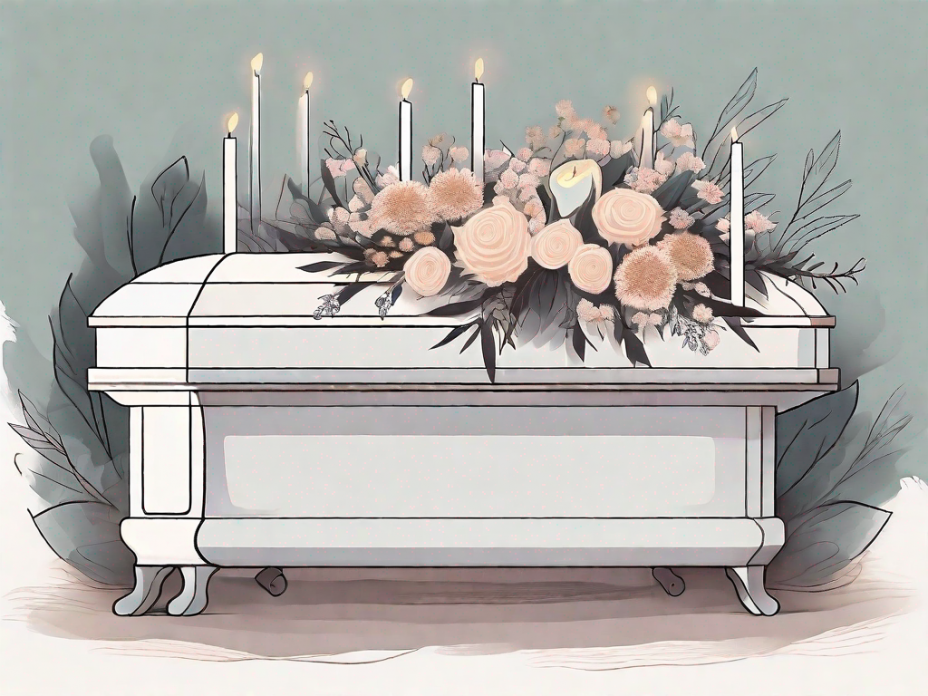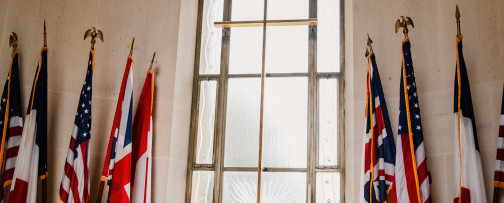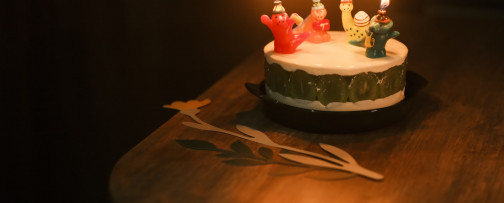When a loved one passes away, one of the important tasks that needs to be undertaken is preparing the body for a funeral. This process has cultural, religious, and psychological significance, with the ultimate goal of providing comfort and closure to the bereaved. Understanding the importance of body preparation and the role of a mortician in this process is essential for creating a meaningful farewell.
Understanding the Importance of Body Preparation
Body preparation for a funeral holds great cultural and religious significance. In many traditions, it is believed that preparing the body ensures a smooth transition for the deceased into the afterlife. It is a final act of respect and care, as well as a way to honor and pay tribute to the life that has been lived.
Aside from its spiritual importance, body preparation also serves psychological benefits for the bereaved. Seeing their loved one prepared for a dignified funeral can provide comfort, closure, and an opportunity to say final goodbyes. It helps the grieving process by allowing family and friends to visually and emotionally process the reality of the loss.
When it comes to body preparation for a funeral, every culture and religion has its unique customs and traditions. These practices vary widely, reflecting the diverse beliefs and rituals that exist around the world. In some cultures, it is customary for family members to actively participate in the process, ensuring that their loved one is prepared according to their beliefs and rituals. This involvement can be therapeutic and help bring a sense of acceptance and closure.
For example, in certain African cultures, body preparation involves washing and anointing the deceased with oils and herbs. This process is seen as a way to purify the body and prepare it for the journey to the afterlife. The use of specific oils and herbs is believed to have spiritual and healing properties, providing comfort not only to the deceased but also to the grieving family.
In contrast, some Asian cultures practice a form of body preparation known as "dressing the body." This involves carefully dressing the deceased in traditional attire, often with great attention to detail. The clothing chosen for the deceased is symbolic and represents their status, achievements, or personal preferences. This act of dressing the body is seen as a way to honor the deceased and ensure they are presented in a dignified manner during the funeral.
Regardless of the specific customs and rituals involved, the psychological benefits of body preparation for the bereaved cannot be overstated. For the grieving family and friends, seeing the deceased well-prepared can provide a sense of peace and closure. It allows them to see their loved one for one last time, giving them an opportunity to say their final goodbyes and say anything that was left unsaid. This visual confirmation of their loved one's passing often helps in coming to terms with the reality of the loss and beginning the healing process.
The Role of a Mortician in Body Preparation
Morticians play a vital role in preparing the body for a funeral. They are trained professionals who have a deep understanding of the physiological, anatomical, and emotional aspects involved in this process. Their expertise ensures that the body is prepared with the utmost care and respect, following the wishes of the family or the deceased's pre-planned funeral arrangements.
When it comes to the delicate task of body preparation, morticians employ a range of techniques and skills to ensure that the deceased is presented in the most dignified manner possible. From embalming to dressing and cosmetology, their attention to detail is unparalleled.
Embalming and Its Purpose
One of the essential tasks performed by morticians is embalming. Embalming is a method of preserving the body and slowing down the decomposition process. It involves injecting embalming fluids into the arterial system, which helps sanitize and temporarily preserve the body, allowing for an open-casket viewing if desired by the family.
During the embalming process, morticians meticulously disinfect and cleanse the body. They carefully replace bodily fluids with embalming fluids, which not only help preserve the body but also restore a natural appearance. By doing so, morticians ensure that the deceased looks as peaceful and lifelike as possible, providing comfort to grieving loved ones.
Moreover, embalming also serves another crucial purpose - it helps to prevent the spread of infectious diseases. By sanitizing the body and inhibiting the growth of bacteria, morticians play a vital role in protecting public health and ensuring the safety of both funeral attendees and staff.
Dressing and Cosmetology for the Deceased
In addition to embalming, morticians also focus on dressing and cosmetology for the deceased. They understand the importance of presenting the deceased in a way that honors their memory and reflects their personality.
When it comes to dressing the deceased, morticians carefully select clothing that aligns with the family's wishes or cultural and religious customs. They pay attention to every detail, ensuring that the clothing is clean, wrinkle-free, and properly fitted. This attention to detail extends to the smallest accessories, such as jewelry or personal items, which are added with utmost care.
Cosmetics also play a significant role in the mortician's work. With their expertise in cosmetology, morticians skillfully apply makeup to the deceased, aiming to restore a natural appearance. They take into consideration factors such as skin tone, facial features, and personal preferences, striving to create a final presentation that is both comforting and familiar to friends and family.
Through their meticulous dressing and cosmetology techniques, morticians help create a serene and dignified atmosphere during the funeral service. Their efforts contribute to the overall experience of saying goodbye to a loved one, providing solace and closure to those in mourning.
Steps in Preparing the Body
The preparation of a body for a funeral goes through various steps, each carried out with meticulous care and attention to detail. These steps ensure that the deceased is presented in the best possible way, offering comfort to the family and friends who will attend the funeral.
Preparing a body for a funeral is a delicate and important process that requires expertise and sensitivity. Every step is taken with the utmost respect and consideration for the deceased and their loved ones.
Initial Cleaning and Positioning
The first step in preparing the body involves gently cleaning the deceased, removing any visible dirt or debris. This process is done with great care and reverence, ensuring that the body is treated with dignity. The cleaning not only removes any external impurities but also helps create a peaceful and serene appearance.
After the cleaning, proper positioning is essential to maintain a natural and relaxed appearance. The mortician carefully arranges the body, ensuring that it looks as if the deceased is simply resting peacefully. Various aids, such as pillows, are used to support the body and maintain a dignified pose.
Application of Preservatives and Fillers
Preservatives and fillers are then applied to the body. These substances help delay the natural decomposition process and restore any lost volume, ensuring a natural and lifelike appearance. The mortician carefully works to achieve a balanced and symmetrical presentation, treating the body with care and respect throughout the process.
During this step, the mortician pays close attention to detail, working diligently to ensure that the deceased's features are preserved and enhanced. The use of preservatives and fillers is done with precision, aiming to create a peaceful and comforting presence for those who will pay their respects.
Final Touches and Presentation
The final step involves adding the finishing touches. Hair is styled, and makeup is applied to enhance the deceased's features and recreate a familiar appearance. The mortician takes into account the individual's preferences and any specific requests from the family to ensure that the presentation reflects the person's unique personality and character.
If the family wishes, personal effects and sentimental items can also be added, further personalizing the presentation. These items can include cherished photographs, favorite possessions, or meaningful objects that hold special memories. The inclusion of these personal touches helps create a more intimate and personalized atmosphere for the funeral service.
Throughout the entire process, the mortician works with empathy and professionalism, understanding the significance of their role in providing solace and support to grieving families. The attention to detail and the commitment to honoring the deceased's memory are evident in every step of preparing the body for the funeral.
Legal and Ethical Considerations
While preparing the body for a funeral is primarily a matter of cultural and personal choices, there are legal and ethical considerations that need to be addressed. Understanding the legal requirements and respecting the rights of the deceased and their family is of utmost importance.
When it comes to the delicate task of preparing a body for a funeral, there are various legal and ethical aspects that must be taken into consideration. These aspects not only ensure that the process is carried out in a respectful and dignified manner but also protect the rights and wishes of the deceased and their bereaved family.
Consent and Rights of the Deceased
Before proceeding with any preparation, it is crucial to ensure that proper consent is obtained. This includes respecting any pre-arranged wishes of the deceased and obtaining permission from the family if necessary. Respecting the rights and wishes of the deceased and their bereaved family is essential in maintaining ethical practices.
Obtaining consent is a fundamental step in the process of preparing a body for a funeral. It ensures that the deceased's wishes are honored and that their family's rights are respected. This can involve obtaining written consent from the deceased prior to their passing or seeking permission from the family if the deceased did not express their preferences beforehand.
By obtaining consent, funeral professionals demonstrate their commitment to ethical practices and their understanding of the importance of honoring the wishes of the deceased and their family. This step helps establish trust and ensures that the preparation process is carried out with the utmost care and respect.
Regulations Surrounding Body Preparation
There are regulations in place regarding body preparation to ensure public health and safety. These regulations may include guidelines on embalming procedures, handling of infectious diseases, and transportation of the deceased. It is necessary for morticians to adhere to these regulations to protect both the public and the dignity of the deceased.
Body preparation is subject to a range of regulations that aim to safeguard public health and maintain the dignity of the deceased. These regulations often vary depending on the jurisdiction and may encompass a wide range of practices and procedures.
One crucial aspect of these regulations is the handling of infectious diseases. Funeral professionals must follow strict protocols to prevent the spread of contagious illnesses during the preparation process. This includes using appropriate personal protective equipment, implementing proper disinfection procedures, and ensuring the safe disposal of any hazardous materials.
Furthermore, transportation regulations play a vital role in ensuring that the deceased is transported safely and securely. These regulations may dictate the use of specific vehicles, the need for proper documentation, and adherence to specific routes or timeframes. By complying with these regulations, funeral professionals contribute to the overall safety and well-being of the public.
Overall, the legal and ethical considerations surrounding body preparation for a funeral are crucial to maintaining the dignity of the deceased and respecting the rights of their bereaved family. By understanding and adhering to these considerations, funeral professionals can ensure that the preparation process is carried out with the utmost care, respect, and professionalism.
Alternatives to Traditional Body Preparation
While traditional body preparation methods have been the norm for centuries, there are alternatives available for those seeking more environmentally friendly or personalized options.
Green Burials and Natural Preparation
Green burials have gained popularity as an alternative to traditional body preparation. In green burials, the body is not chemically preserved but allowed to naturally decompose in an environmentally friendly manner. This approach minimizes the use of chemicals and reduces the ecological impact associated with traditional burial methods.
During a green burial, the body is placed in a biodegradable casket or shroud and buried in a natural setting, such as a meadow or woodland. The burial site is carefully chosen to ensure it has minimal impact on the surrounding ecosystem. As the body decomposes, it nourishes the soil and supports the growth of native plants and wildlife.
Green burials also offer a more personal and meaningful experience for loved ones. Families can actively participate in the burial process, such as digging the grave or placing flowers on the casket. This hands-on involvement can provide a sense of closure and connection to the natural cycle of life.
Cremation and Ashes Preparation
Cremation is another alternative to traditional body preparation. The body is transformed into ashes, and loved ones have the option to keep the ashes in an urn, scatter them in a special location, or use them to create memorial items such as jewelry or glass art. Cremation offers a personalized and versatile way to honor the deceased and keep their memory close.
After the cremation process, the ashes are carefully collected and placed in an urn of the family's choice. This urn can be displayed in the home, providing a tangible presence of the loved one. Alternatively, the ashes can be scattered in a location that held significance for the deceased, such as a favorite hiking trail or beach.
For those who want to carry a piece of their loved one with them, ashes can be transformed into memorial jewelry. This can be in the form of a pendant, ring, or bracelet, allowing the person to keep their loved one close to their heart at all times. Ashes can also be incorporated into glass art, creating unique and beautiful pieces that serve as a lasting tribute.
Additionally, cremation offers flexibility in memorialization. Families can choose to hold a traditional funeral service before the cremation or opt for a memorial service afterwards. This allows for more personalized and meaningful gatherings, where family and friends can share stories and memories of the deceased.
Coping with Grief During the Preparation Process
The process of preparing the body for a funeral can be emotionally challenging for family members. It is essential to provide support and resources to help them cope with their grief during this difficult time.
Emotional Challenges for Family Members
Family members may experience a range of emotions during the body preparation process. Grief, sadness, and a deep sense of loss are natural and expected responses. It is important to validate these emotions and support the family as they navigate their grief journey.
Support and Resources for Grieving Individuals
Various support networks and resources are available to help individuals cope with grief. Funeral homes often provide grief counseling services and can connect bereaved families with support groups or therapists. Additionally, there are numerous online resources, books, and community organizations that offer guidance and understanding during this challenging time.
In Conclusion
Preparing the body for a funeral is a process that carries both cultural and emotional significance. It is a way to honor the deceased, provide closure for the bereaved, and create an environment where individuals can say their final goodbyes. Understanding the importance of body preparation, the role of morticians, and the legal and ethical considerations involved, ensures that the process is carried out with respect, dignity, and sensitivity towards the grieving families.
Recommended Products
- XSMZB Infinity Urn Necklace — Infinity-symbol cremation pendant necklace for keeping a loved one close to your heart.
- Funeral Guest Book & Memory Card Set — Elegant guest book with matching memory cards for funeral and memorial services.
- MUERDOU Memorial Urn Necklace — Elegant "No Longer by My Side, Forever in My Heart" cremation urn pendant necklace.


-banner.png)





